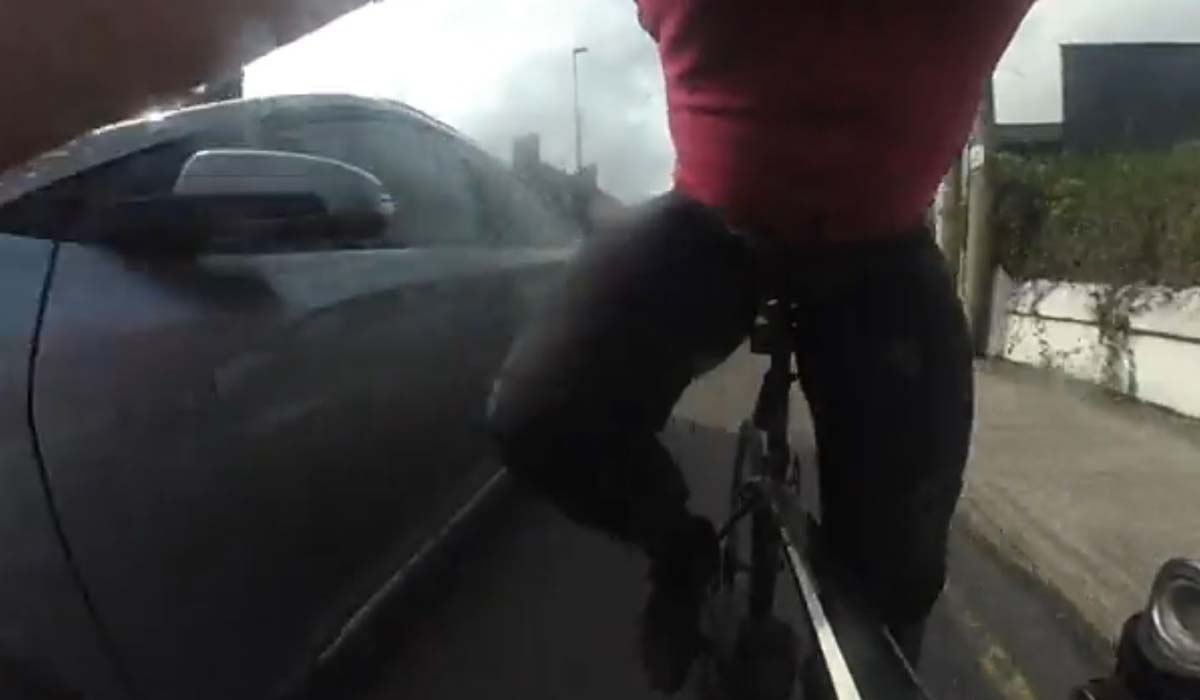
Gardaí Slam Cyclist’s Footage as ‘Biased’

A cyclist who reported alleged road traffic offences to the Gardaí found themselves on the receiving end of a stern warning, accused of having a “biased agenda” and potentially facing investigation by the Data Protection Commissioner. This situation has sparked controversy, especially given the Gardaí’s usual practice of appealing to the public for dashcam footage to aid investigations into serious road incidents.
The cyclist in question had submitted reports of four alleged road traffic offences through the Garda Traffic Watch portal, an online system designed for such purposes. The response they received from the Gardaí was described as threatening, with the officer claiming the cyclist lacked a “legitimate” reason to collect the camera footage included in their report.
The incident came to light after the @righttobikeit account on X (formerly Twitter), a cycling road safety advocacy group, shared a picture of the letter received by the cyclist. The account further claimed that other cyclists had reported receiving “identical” letters from the same Garda, suggesting a pattern of behaviour.
The letter itself, now circulating online, reveals the Garda’s concerns. The officer stated that they had “reviewed” the four incidents reported by the cyclist and believed there was a “biased agenda” in the way the cyclist was reporting incidents and providing video evidence.
The Garda went on to suggest that the cyclist’s “actions and agenda” could be “prejudicial to the Constitutional Rights of any accused person.” The letter highlighted the cyclist’s use of a bicycle-mounted video camera, noting that the footage recorded in public places contained identifiable subjects and was being stored for an unspecified period. The Garda asserted that the cyclist had “no basis whatsoever for performing this function.”
The cyclist was urged to read the Data Protection Act 2018 “in full.” The Garda warned that the cyclist’s data storage practices, including archiving the video footage on an undisclosed data storage, potentially made them a Data Controller. This, in turn, would subject them to the provisions of the Data Protection Act 2018 and all regulations related to capturing, storing, and sharing data. The letter concluded with a threat to “review” other similar incidents reported by the cyclist and potentially submit a report for investigation to the Data Protection Commissioner.
Following the publication of the letter on X, the @righttobikeit account reported that three other cyclists had come forward, claiming they had received the same letter from the same Garda after reporting alleged road traffic offences. The account described the letter as “despicable and outrageous” and accused the Garda of seeking “to undermine the system.”
In response to the controversy, the Gardaí issued a statement addressing the general principles involved. They cited advice from the Data Protection Commission and a relevant judgment from the Court of Justice of the European Union (CJEU), stating that individuals recording video/audio in a public place assume the role of a data controller and must comply with the General Data Protection Regulation (GDPR) and the Data Protection Act 2018.
The statement also clarified the Gardaí’s policy regarding unsolicited digital images. While they do not comment on third-party remarks or specific correspondence with private individuals, they emphasized the importance of proving the veracity of any digital image used for prosecution. Therefore, the Gardaí cannot accept unsolicited images directly.
However, the Gardaí stated that they should engage with the complainant/witness to verify the footage, arranging for a direct, in-person download and an accompanying statement of complaint. The third party must be available to attend court and potentially prove the digital image’s authenticity. The statement refuted the misconception that a Garda member could simply present an unsolicited, unverified digital image as evidence in court. Each complaint and investigation is handled individually.
The Gardaí also highlighted Action 29 in Ireland’s Government Road Safety Strategy 2021 – 2023, which explores the potential of an online portal for road users to upload footage of road traffic offences to assist in prosecution.
Currently, the Gardaí are developing a Digital Evidence Management System (DEMS) to facilitate the rollout of Body Worn Cameras (BWC). This system will also serve as a modern legal platform, allowing for the safe transfer of third-party video to the Gardaí while protecting the evidential value of the images and complying with legal frameworks.
Finally, the Gardaí provided information on how to lodge a complaint regarding the conduct of a Garda member, directing individuals to Fiosrú, the Office of the Police Ombudsman. The situation raises important questions about the balance between public safety, data protection, and the role of citizen journalism in reporting crime.






